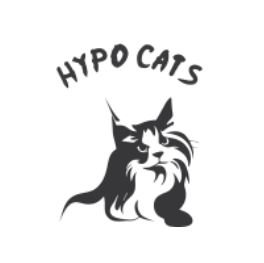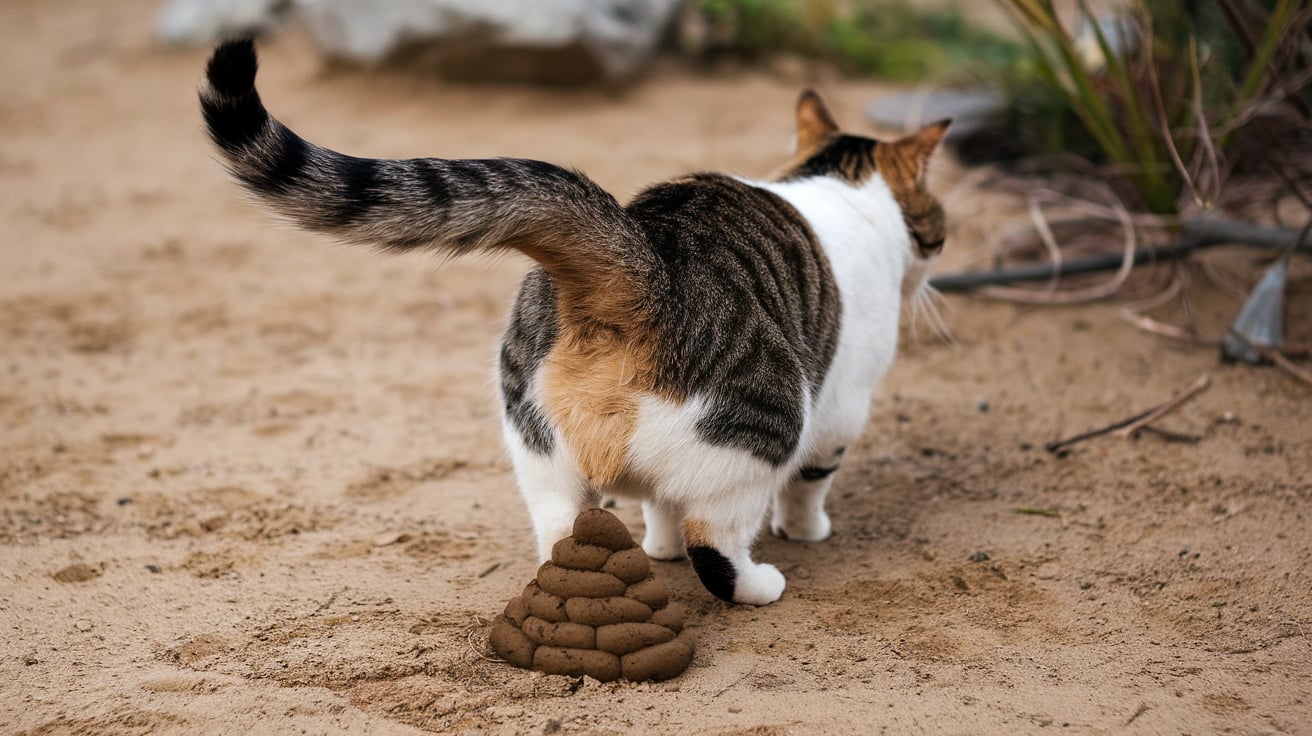Table of Contents
ToggleDried-Up Poop Cat Butt: Causes, Prevention, and Solutions
Keeping your feline friend clean and healthy is a top priority when you’re a cat parent. One common issue that can arise is dried-up poop sticking to your cat’s butt. “Dried-up poop on cat butt” This problem, while often harmless, can be uncomfortable for your cat and unpleasant for you to deal with. Understanding why dried-up poop sticks to your cat’s butt, how to prevent it, and how to solve it when it happens is key to maintaining your cat’s hygiene. In this article, we’ll explore the causes and solutions for dried-up poop cat butt and offer tips to avoid future occurrences.
Why Does Dried-Up Poop Stick to Your Cat’s Butt?
There are several reasons why your cat might end up with dried-up poop sticking to their rear. It’s not just about cleanliness; it can also be related to health and grooming habits. Let’s break down some common causes.
1. Long Fur and Grooming Issues

For long-haired cats, their luxurious coats can sometimes be a curse rather than a blessing. Fecal matter can easily get stuck in their fur, leading to dried-up poop cat butt. Cats are generally great at grooming, but if your long-haired cat has extra fluff, it can be challenging for them to clean their own behind effectively.
2. Diarrhea or Soft Stools
Cats that have diarrhea or softer stools are more prone to ending up with dried-up poop on their butts. The looser consistency makes it more likely for fecal matter to cling to their fur. Soft stools can be caused by various issues, including dietary changes, food intolerances, or underlying health conditions.
3. Lack of Grooming
Some cats, especially older ones, may struggle with grooming themselves as effectively as they used to. Arthritis, obesity, or other physical conditions can limit their ability to reach certain areas, including their butt, which can result in dried-up poop sticking to the fur.
4. Digestive Problems
Digestive issues, such as constipation, can sometimes cause your cat to strain during bowel movements. This may lead to the incomplete elimination of fecal matter, leaving some residue that eventually dries up and sticks to the fur.
The Problems with Dried-Up Poop on Your Cat’s Butt
Having “dried-up poop cat butt” isn’t just about cleanliness; it can also cause health and comfort problems for your pet. Let’s look at some of the issues associated with this condition.
1. Skin Irritation
Dried-up poop can irritate the sensitive skin around your cat’s butt. When left for long periods, the fecal matter can lead to redness, inflammation, and even infections. Cats may start to lick or scratch excessively, which only worsens the irritation.
2. Unpleasant Odor
One of the most obvious problems with dried-up poop on a cat’s butt is the smell. The fecal matter left on your cat’s fur can create a lingering odor that’s not only unpleasant for you but can also be distressing for your cat.
3. Health Risks
If dried poop remains on your cat’s fur for an extended period, it can attract bacteria and other harmful microorganisms. In extreme cases, this can lead to infections, not just in the skin but potentially internally if your cat licks the affected area excessively.
4. Social Issues
Cats are clean animals by nature. When they are unable to keep themselves clean, it can affect their mood and social behavior. They may become withdrawn, less playful, or even irritable if they’re dealing with the discomfort of dried-up poop.
How to Clean Dried-Up Poop from Your Cat’s Butt
If you notice “Dried-up poop on cat butt” it’s important to clean the area as soon as possible to avoid any discomfort or health issues. Here’s an easy guide to help you handle the situation step by step.
1. Gather Your Supplies
You’ll need a few basic items to clean your cat’s butt:
- A pair of gloves
- Pet-safe wet wipes or a damp cloth
- Scissors or a pet-safe trimmer (for long-haired cats)
- Warm water and mild soap (if necessary)
2. Calm Your Cat
Make sure your cat is relaxed and comfortable before you start. Gently pet and reassure them, or offer a treat to distract them while you work. If your cat is particularly resistant to handling, you may need a second person to help hold them still.
3. Gently Wipe Away the Dried Poop
Using a damp cloth or pet-safe wipes, gently wipe the area around your cat’s butt. Be patient, and avoid pulling or tugging at the fur, as this can be painful. For particularly stubborn dried-up poop, you may need to use warm water to soften the material before wiping it away.
4. Trim the Fur if Necessary
For long-haired cats, trimming the fur around their rear end can help prevent future issues. Use a pair of scissors or a pet-safe trimmer to carefully trim away any matted fur that may be trapping fecal matter.
5. Check for Irritation
After cleaning, check the area for any signs of redness, irritation, or infection. If you notice anything concerning, consult your veterinarian for further advice.
Preventing Dried-Up Poop on Your Cat’s Butt

While cleaning dried-up poop from your cat’s butt is important, prevention is always better. Here are some strategies to help prevent this issue from occurring in the first place.
1. Regular Grooming
For long-haired cats, regular grooming is essential to prevent fecal matter from getting stuck in their fur. Brushing your cat daily can help keep their coat free of tangles and mats, making it easier for them to stay clean.
2. Monitor Your Cat’s Diet
If your cat has frequent diarrhea or soft stools, it may be a sign that something in their diet isn’t agreeing with them. Consider talking to your veterinarian about switching to a more easily digestible food, or incorporating a high-fiber diet to help firm up their stools.
3. Provide Litter Box Access
Ensuring your cat has easy access to a clean litter box is crucial. Cats may avoid using a dirty litter box, which can lead to improper elimination and dried-up poop. Scoop the litter box daily and provide multiple boxes if you have more than one cat.
4. Check for Health Issues
If your cat is struggling with dried-up poop on their butt frequently, it may be time for a vet visit. Digestive problems, constipation, or other underlying health conditions could be contributing to the issue. Your vet can help diagnose any problems and suggest appropriate treatments.
5. Keep the Area Trimmed
For long-haired cats, consider keeping the fur around their butt trimmed. This will help reduce the chances of fecal matter getting stuck in their coat. If you’re not comfortable doing this yourself, a professional groomer can help.
When to See a Vet
While dried-up poop cat butt can often be managed at home, there are some situations where you should seek veterinary advice. If you see any of the following, call your vet:

- Persistent diarrhea or constipation
- Redness, swelling, or signs of infection around the butt
- Changes in your cat’s behavior or appetite
- Difficulty with bowel movements
These symptoms could indicate a more serious underlying health issue that needs medical attention.
Conclusion
“Dried-up poop on cat butt” may seem like a minor issue, but it can lead to discomfort, irritation, and potential health problems if not addressed. By understanding the causes, learning how to clean your cat’s butt properly, and taking preventive measures, you can ensure your cat stays clean, comfortable, and happy. Regular grooming, a healthy diet, and proper hygiene care are key to preventing dried-up poop cat butt from becoming a recurring problem. If you notice any signs of persistent issues, don’t hesitate to consult your veterinarian for guidance.
FAQs: Dried Up Poop Cat Butt
- What does it mean if my cat’s poop is dry?
- Dry poop in cats usually indicates dehydration or constipation. It can also be a sign of an inadequate diet, low fiber, or an underlying health issue.
- How can I help my cat with dry poop?
- To help your cat, increase their water intake by providing fresh water or wet food. You can also add fiber to their diet and ensure they get regular exercise. If the problem continues, talk to your vet.
- To help your cat, increase their water intake by providing fresh water or wet food. You can also add fiber to their diet and ensure they get regular exercise. If the problem continues, talk to your vet.
- How do you remove impacted stool from a cat?
- For impacted stool, a vet may recommend a stool softener, enema, or manual extraction. Never attempt an enema at home without veterinary guidance, as it can harm your cat.
- Why does my cat scoot poop stuck?
- Cats may scoot due to poop stuck to their fur or irritation around their anus, often caused by dry stool, diarrhea, or anal gland issues. Cleaning the area and addressing the underlying issue can help.
RELATED ARTICLE:
Are Monstera Toxic to Cats?

Welcome to Hypocats.com! I’m Khawar Akhtar, a passionate writer dedicated to all things feline. With a deep love for cats and a keen interest in their health, diet, and training, I strive to provide cat owners with valuable insights and practical advice to enhance their furry friends’ well-being. My goal is to share my expertise and enthusiasm for our whiskered companions, helping them lead happier, healthier lives. When I’m not writing, you’ll find me spending quality time with my Russian Blue cat, enjoying the simple joys that come with being a cat lover. Thank you for visiting Hypocats.com—I hope you find the information here as helpful and inspiring as I do!


Leave a Reply